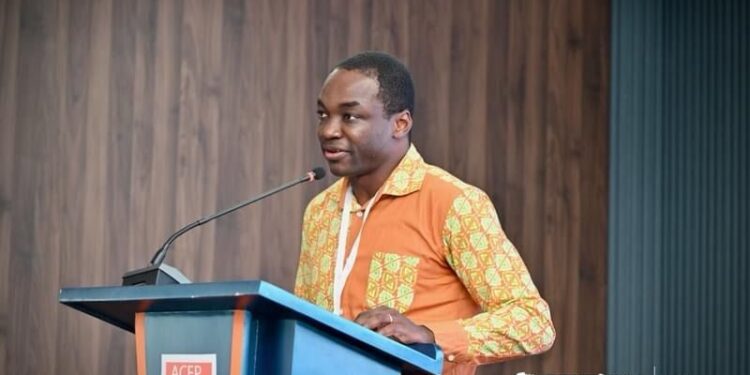Sustainable Mining: ACEP’s Dr Charles Ofori Links Illegal Mining Surge to Enforcement Gaps and Socioeconomic Pressures
“Imagine Ghana having to import water,” he warned, noting that environmental degradation has far-reaching effects on public health and ecosystems beyond mining regions.
- Advertisement -
Dr. Charles Ofori, Policy Lead for Climate Change and Energy Transition at the Africa Centre for Energy Policy (ACEP), has raised critical concerns regarding Ghana’s ability to balance mineral extraction with environmental preservation, citing persistent lapses in regulatory enforcement.
In an interview on JoyNews on Thursday, November 14, 2024, he emphasized that sustainable mining requires rigorous adherence to existing laws, pointing out that enforcement issues rather than legislative gaps continue to enable illegal mining operations.
- Advertisement -
“Illegal mining is not just about lacking a license,” said Dr. Ofori, “it’s also about the failure to adhere to environmental and safety regulations, which are all enshrined in Ghana’s mining laws.”
- Advertisement -
He highlighted that requirements such as land reclamation, intended to restore mining sites to their original state, are often ignored, despite being legal obligations for mining companies.
“Reclamation should not be a campaign promise but a given,” he remarked, underscoring the need for legal accountability rather than political pledges to address the environmental damage caused by mining.
Dr. Ofori also pointed to deeper socioeconomic drivers of illegal mining, including the lure of quick financial gains and limited employment opportunities.
“Many young people see gold mining as a more lucrative alternative to professions like teaching or nursing,” he explained, adding that the comparative economic rewards create an appeal that outweighs the risks. This inclination is further reinforced, he suggested, by the perception that some illegal miners receive political protection, thereby complicating enforcement efforts.
Commenting on the broader environmental toll, Dr. Ofori warned that pollution of water bodies and loss of biodiversity are pressing issues that require immediate action. The Ghana Water Company’s recent alert on potential water shortages, linked to mining-induced contamination, serves as a stark reminder of the urgent need for reform.
- Advertisement -
“Imagine Ghana having to import water,” he warned, noting that environmental degradation has far-reaching effects on public health and ecosystems beyond mining regions.
He further questioned the rationale behind granting mining licenses within protected areas and forest reserves, suggesting that such actions undermine Ghana’s biodiversity goals and contradict international environmental commitments.
“Mining should be confined to non-sensitive areas,” he asserted, stressing that certain areas particularly forest reserves need to remain off-limits to preserve biodiversity.
Dr. Ofori also highlighted the disconnect between mining revenues and local development. Despite mining contributing approximately 10-12% to Ghana’s domestic revenue, he noted that only a small fraction reaches local communities, typically through a capped percentage of royalties allocated to districts.
“The Mineral Development Fund provides crucial support for these communities, but capping and delays in funds distribution create severe development gaps,” he noted.
Addressing Ghana’s long-term economic strategy, Dr. Ofori called for a transparent revenue management framework to ensure mining revenues are efficiently allocated to benefit affected communities.
He suggested that a holistic approach, combining strict regulatory enforcement, equitable revenue distribution, and environmental conservation, is essential for sustainable mining in Ghana.
Source: Norvanreports.com
- Advertisement -


